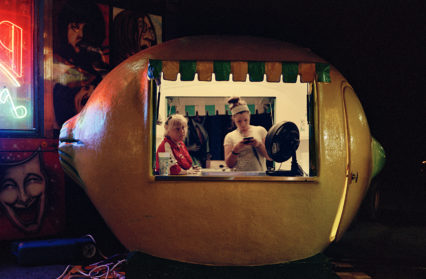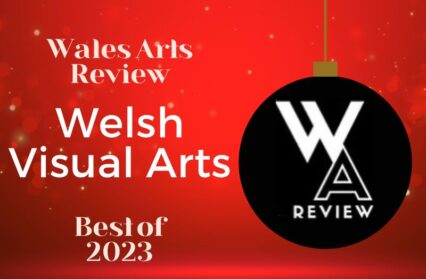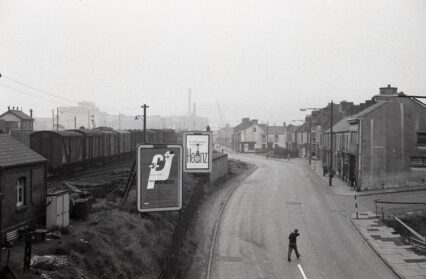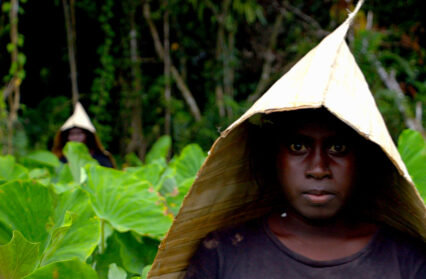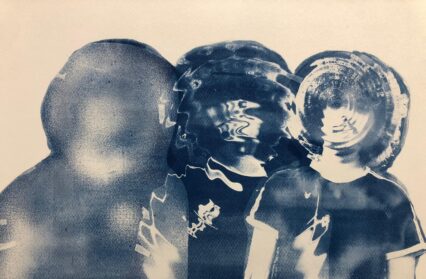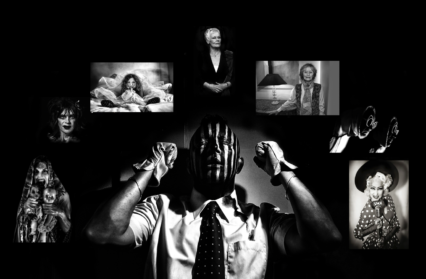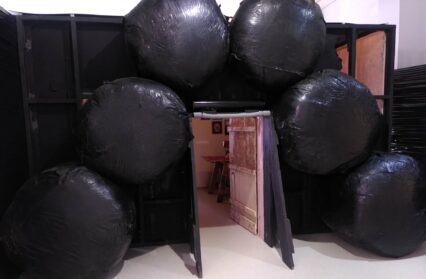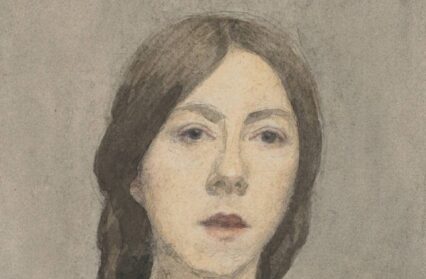A new body of work called Witness by the 2017 ESPY International Photography award winner Kathryn Allen Hurni goes display at Swansea’s Elysium Gallery from Friday, November 2 with portraiture as the focus. It’s the first time Kathryn has exhibited at the Elysium Gallery (and the UK as a whole). Hurni was the winner of the Elysium gallery led ESPY Photo award which has been running biennially since 2013. Her work was chosen from over 300 international photographers.
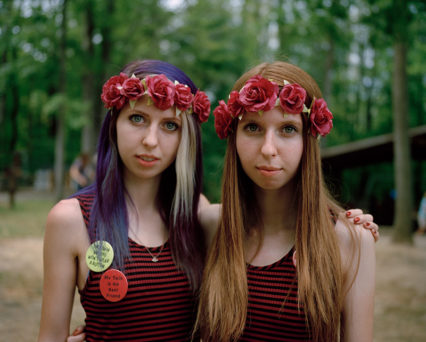
What does it mean for you to be exhibiting at Elysium Gallery and coming to Wales, especially with the important photographic innovations by Fox Talbot that happened around here in the Victorian era?
In many ways, photography has been through whole revolutions since the time of those like Julia Margaret Cameron or Henry Peach Robinson. But I’d like to think that their far-thinking attitudes towards and use for photography would welcome these changes. Robinson was mastering photomontage just as we would employ photoshop today. Julia Margaret Cameron was interested in expression over proficiency, earning critical remarks about her lack of technical skill. And Talbot was competing with Daguerre to invent a new way of recording camera images because he fascinated by “the inimitable beauty of pictures of nature’s painting which the glass lens of the Camera throws upon the paper in its focus.”
These individuals were true pioneers in the medium that paved the way for photography to become one of the most celebrated art forms today. I am grateful to be a very small part of this photographic history, benefiting from all inaugural figures who took steps before me. Being from America, a country with a relatively short past makes me even more appreciative to show my work in a place that is home to such rich and storied expression.
What did it mean to win the espy photo award last year?
It’s a great honour to be the recipient of the 2017 ESPY Photo award. Seeing the quality of work produced by fellow photographers in the short-list exhibition was extremely humbling.
I’ve been photographing beginning at the age of 13. Since picking up the camera over 20 years ago, I’ve experienced my practice as an exercise in patience, doubt, growth, and exploration. A few years back I was seriously questioning my art and myself. Through this I came to the realisation that my doubt didn’t much matter because I would always continue to photograph. I made images for myself and allowed for that to be enough. This mental resolve helped me to share my work more freely with others. And now here I am exhibiting my work on a different continent, hoping that people enjoy my work as much as I enjoy making it. It’s extremely gratifying to have an opportunity to display images that make up my own little history and to think that people might be interested in joining me on this journey.
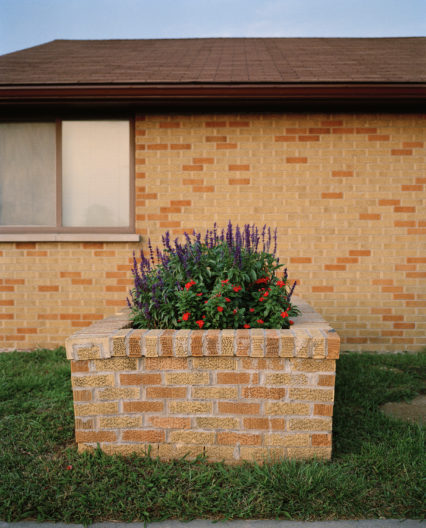
Has the award help in any way?
It has really helped my commercial practice. Clients seem to respond well to the phrase “award-winning.” Go figure.
What’s your creative process?
A fellow artist once commented that my work was “part poached, and part cultivated.” Generally, I work with a medium format rangefinder which limits off-the-cuff shooting and makes me somewhat conspicuous. I see a person or environment, take it in, and then double back to photograph.
Before I even approach, I am aware of something in the situation that I want to return to but cannot pinpoint. It’s as if trying to marry the unconscious moment with the conscious action of photographing. I attempt to pay homage to the initial encounter I had moments before, knowing that I indelibly altered the landscape of experience just by deciding to click the shutter. In this sense, it feels very much like wanting to steal the moment of clarity I experienced while fostering a new representation of that moment via a photograph.
During the act of photographing, I’m usually drawn by emotion and instinct. I rarely photograph with a specific intent in mind. When I see the image(s) solidified on film, I’m confronted with my own personal discernment. What about this image visually conveys the experience I had during the moment of depressing the shutter and does it translate in print?
Once I have my selects I scan the negatives with a drum scanner or Imacon, then hone the raw files in photoshop. I’m generally a purist in the sense that I do not like to alter my images from what is on film, opting to keep even distracting details in the frame. I only dust and tone the images, making them ready for digital c prints or archival prints.
Editing and formulating a body of work has always been difficult for me because I usually have no conscious over-arching concept in mind. Instead, my work is a collection of images that I resist linking together.
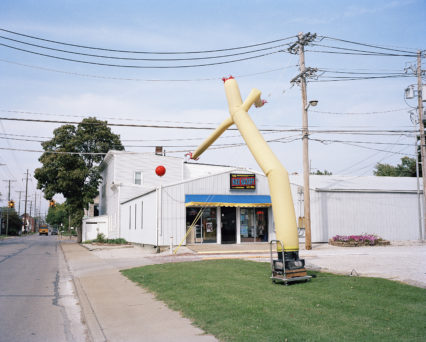
Why are you drawn to portraits?
Unlike landscapes, compelling and allegorical, portraiture holds a dynamism for me that environmental photography rarely taps into. When I approach a scene devoid of people, I know what to expect, it’s static even if charged. I walk around the place making my mark on it, controlling the perspective; the depth and breadth of the space. But as soon as I interact with a person(s) as a subject, I am forced into a photographic collaboration. I have no idea how he or she might react to me as a photographer, or to be photographed. Sometimes people flat out say no to my request to capture them. The interaction is an ever-changing give and takes between myself and the subject, most of which is subtly negotiated by feel rather than spoken words. And while I have an image in mind, based on what I just saw in them before approaching, I’m forced to give up control. The portrait is up to the sitter as much as it is up to me. At that moment endless potential creates endless possibilities.
What do you want the viewers to take away from her work at the Elysium Gallery?
Perhaps because I am too close to the process of image-making; I cannot rightly think beyond myself and the photographs I create to give that a proper answer. Presuming to know what viewers will take away from my work, or claiming I know what I want to convey seems like an effete exercise. For me, photographing is a process of discovery rather than an execution of a pre-determined concept.
The only direction I can give the percipient is that photographing is my personal, meandering, and sometimes faltering steps towards moments of clarity. Even while putting this show together, I felt the laborious and winding nature of traversing unknown surroundings only to map a tenuous course upon reflection.
The Elysium Gallery in Swansea is both an art gallery and bar.
Other work written by Rachel Mainwaring is available through the Wales Arts Review website.


